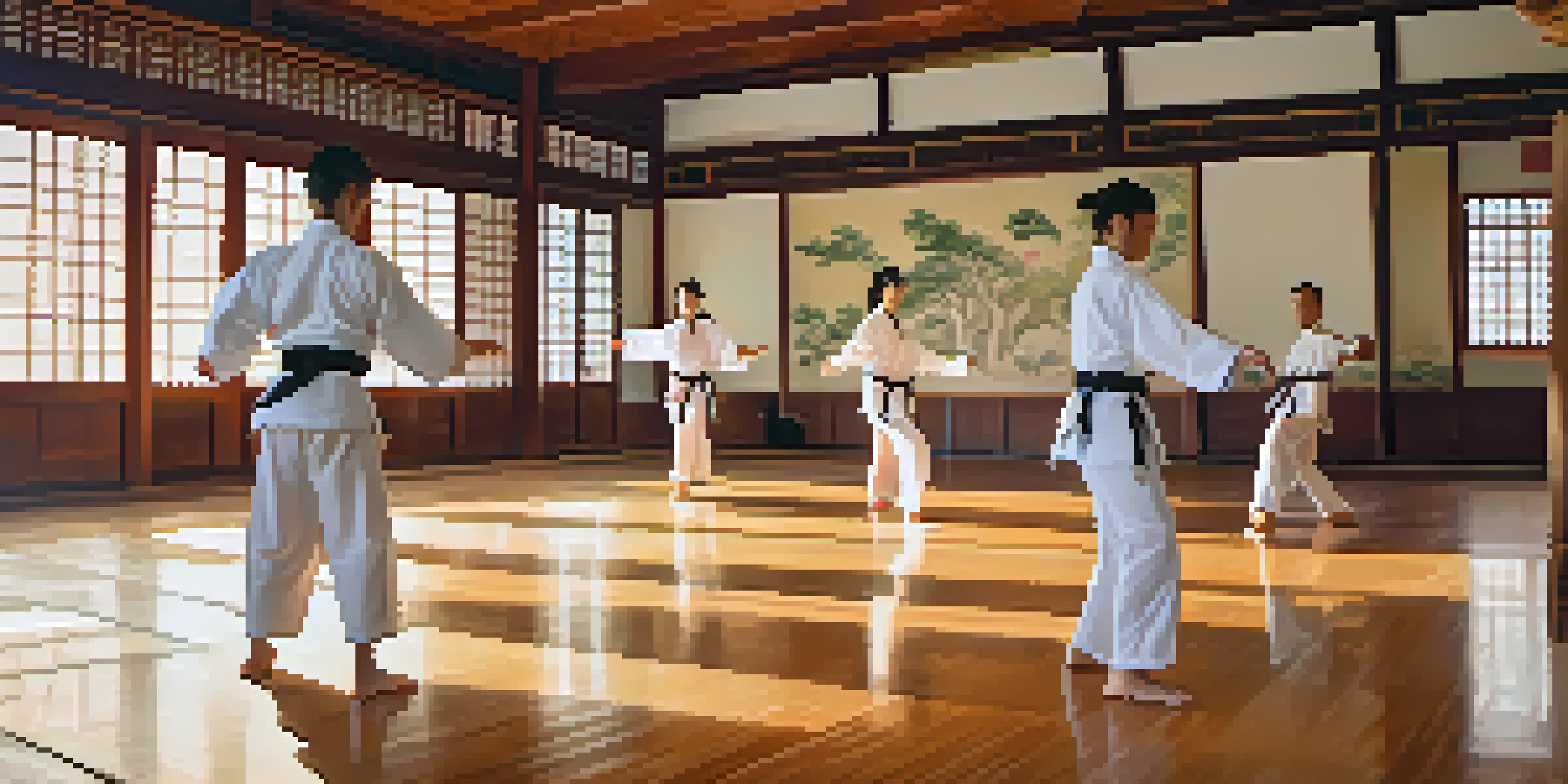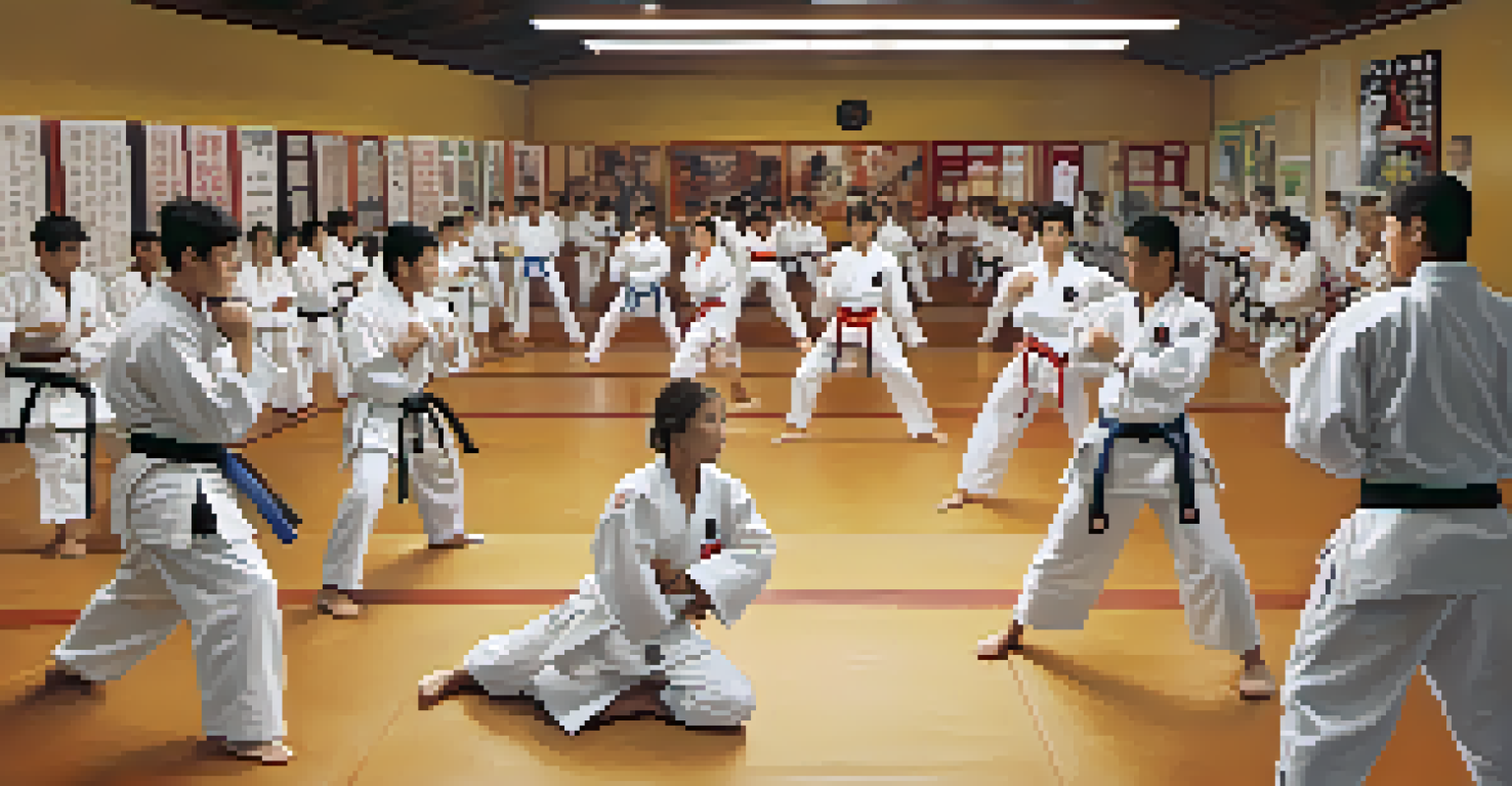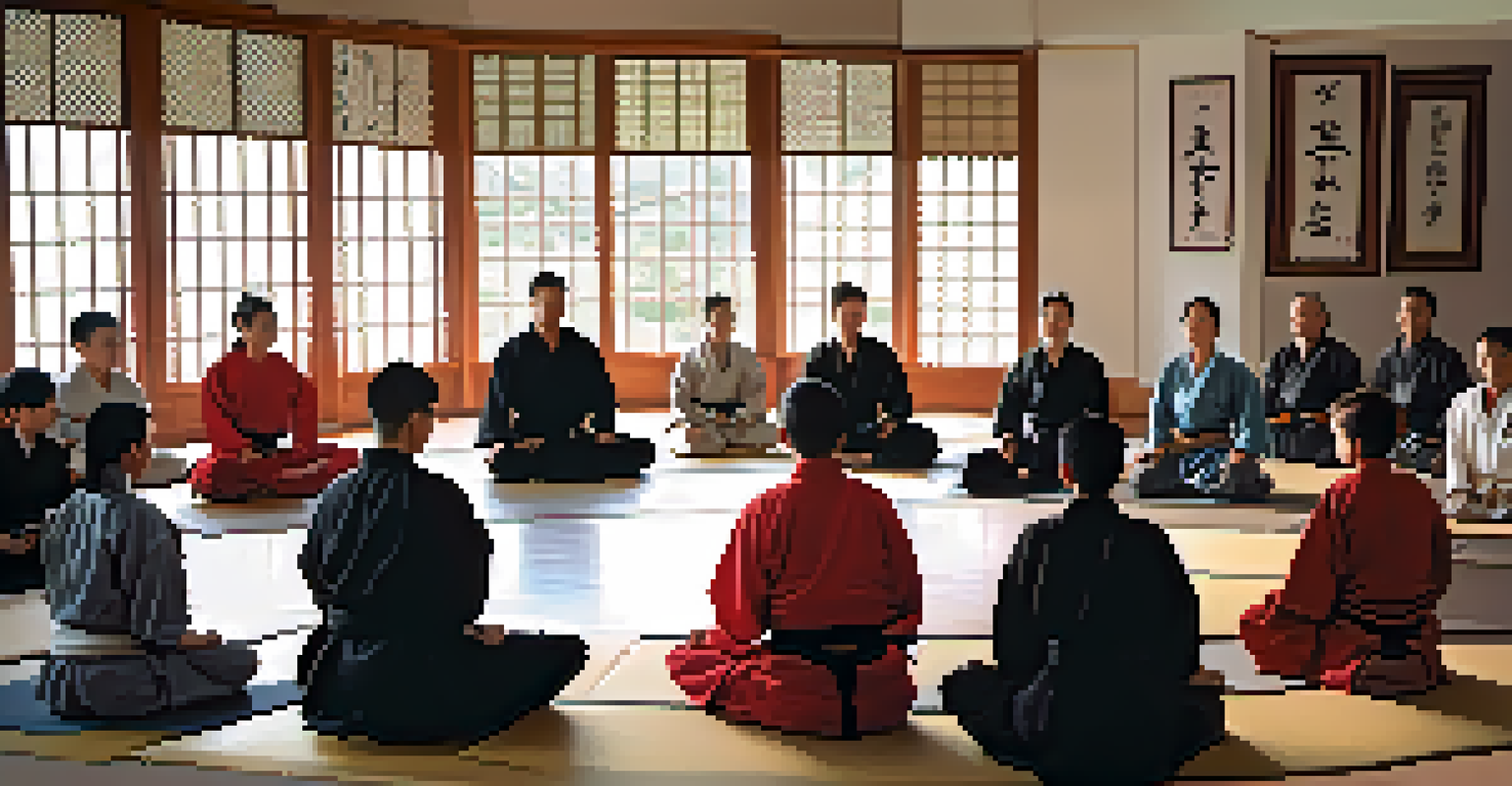Martial Arts as a Tool for Overcoming Anxiety Disorders

Understanding Anxiety Disorders and Their Impact
Anxiety disorders can be debilitating, affecting daily life and relationships. They encompass various conditions like generalized anxiety disorder, panic disorder, and social anxiety, each with its unique challenges. The physical symptoms, such as rapid heartbeat and sweating, can feel overwhelming and isolating.
Anxiety is the handmaiden of creativity.
For many, anxiety manifests not only mentally but also physically, leading to a cycle of fear and avoidance. This can limit one's activities and contribute to a decline in overall well-being. It’s essential to recognize that these feelings are valid and that seeking solutions is a vital step toward recovery.
While traditional therapies, such as cognitive-behavioral therapy and medication, are helpful, many individuals seek additional methods to manage their anxiety. This is where martial arts enter the conversation, offering both physical and psychological benefits that can help break the cycle of anxiety.
How Martial Arts Promote Mindfulness and Focus
Martial arts training emphasizes mindfulness, teaching practitioners to focus on the present moment. Techniques such as controlled breathing and meditation are often integrated into training sessions, which can help reduce racing thoughts associated with anxiety. By concentrating on their movements, individuals can cultivate a sense of calm and clarity.

For example, during a karate class, students learn to channel their energy and attention into each punch and kick. This process naturally draws the mind away from stressors and distractions, allowing for a mental reset. Over time, this practice can enhance one's ability to cope with anxiety in everyday situations.
Martial Arts Enhance Mindfulness
Practicing martial arts fosters mindfulness through focused movement and controlled breathing, helping individuals manage anxiety.
Furthermore, the structured environment of martial arts classes provides a safe space to explore and confront fears. As practitioners learn to master their techniques, they also gain confidence in their abilities, fostering a positive mindset that counters anxious thoughts.
Physical Activity as a Natural Stress Reliever
Engaging in physical activity is one of the most effective ways to combat anxiety. Martial arts offer a dynamic workout that not only builds strength and flexibility but also promotes the release of endorphins—our body's natural mood lifters. This biochemical reaction can create a sense of euphoria often referred to as the 'runner’s high.'
The only thing we have to fear is fear itself.
Practicing martial arts can be a powerful outlet for pent-up energy and tension. The rigorous training sessions provide a physical release, allowing individuals to channel their feelings into something constructive and empowering. This is particularly beneficial for those who may struggle to express their emotions verbally.
Moreover, martial arts foster discipline and consistency, which can lead to improved self-esteem. As students progress through ranks and learn new skills, they experience a sense of achievement that can counter feelings of inadequacy often associated with anxiety disorders.
Building a Supportive Community in Martial Arts
One of the often-overlooked benefits of martial arts is the sense of community it fosters. Training alongside others creates bonds and friendships that can provide emotional support for those dealing with anxiety. This camaraderie can combat feelings of isolation and promote a sense of belonging.
Many martial arts studios emphasize teamwork and mutual support, helping students encourage one another throughout their journeys. This collaborative spirit can make it easier to share personal experiences and challenges, reducing the stigma surrounding mental health issues. Having a supportive network can make all the difference in someone’s recovery process.
Physical Activity Alleviates Stress
Engaging in martial arts provides a dynamic workout that releases endorphins, acting as a natural mood lifter.
Additionally, group classes provide a structured environment where individuals can face their fears in a safe setting. As they interact with peers, they learn social skills and develop resilience, which can translate into greater confidence outside the dojo or training hall.
Overcoming Personal Limitations Through Martial Arts
Martial arts training often challenges individuals to push beyond their perceived limits. This journey of self-discovery can be particularly transformative for those struggling with anxiety. By facing physical challenges, practitioners learn to confront their mental barriers, gaining insight into their strengths and capabilities.
For instance, a student may initially feel anxious about sparring with a partner. However, as they practice and develop their skills, they begin to feel more comfortable and confident. This gradual exposure helps desensitize them to their fears, fostering resilience that can be applied in other areas of life.
As practitioners learn to embrace discomfort and uncertainty on the mat, they develop coping strategies that can be utilized in real-world situations. This newfound resilience can empower them to face anxiety head-on, leading to a more fulfilling and balanced life.
The Role of Breathing Techniques in Martial Arts
Breathing techniques are a fundamental aspect of martial arts, often used to enhance focus, control, and relaxation. Learning to regulate one’s breath can significantly reduce anxiety symptoms, as deep breathing promotes a sense of calm and lowers heart rates. This practice is particularly useful during high-stress situations.
For example, many martial arts incorporate specific breathing patterns during forms or kata, which helps practitioners maintain a steady and relaxed state. This not only improves performance but also serves as a practical tool for managing anxiety in daily life. By consciously focusing on breath, individuals can ground themselves and alleviate overwhelming feelings.
Community Support Reduces Isolation
Training in martial arts builds a supportive community, which can help alleviate feelings of isolation and promote emotional well-being.
Integrating these techniques into daily routines can create a powerful habit of mindfulness. Whenever anxiety strikes, the ability to take a few deep breaths can serve as a quick and effective way to regain composure and clarity.
Finding the Right Martial Arts Style for You
Choosing the right martial arts discipline is crucial in maximizing its benefits for anxiety relief. Various styles, such as karate, judo, taekwondo, and tai chi, offer different approaches, so it's essential to explore one's options. Each style has unique philosophies and techniques that may resonate differently with individuals.
For example, tai chi is often described as 'meditation in motion,' focusing on slow, deliberate movements that promote relaxation and mindfulness. In contrast, more dynamic styles like kickboxing may appeal to those seeking an intense physical workout. Understanding personal preferences and goals will help in selecting a style that feels most comfortable.

It's also beneficial to attend a few trial classes to gauge the atmosphere of the dojo or studio. Finding an encouraging and positive environment can greatly influence the overall experience, making martial arts a truly effective tool for managing anxiety.